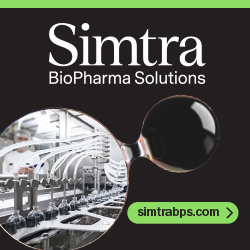Atossa Genetics Completes All Dosing & Clinical Visits in its Study of Topical Endoxifen
Atossa Genetics Inc. recently announced it has completed dosing and clinical visits in its Phase 1 study of its proprietary topical Endoxifen in men.
“We are now proceeding to the final stages of this study, which are to complete analysis of blood samples and then collect and analyze the data,” said Steve Quay, PhD, MD, President and CEO of Atossa. “We expect to report preliminary results from the study in the next quarter.”
The objectives of the placebo-controlled, repeat dose study of 24 healthy male volunteers are to assess the pharmacokinetics of a proprietary topical Endoxifen dosage form over 28 days, as well as to assess safety and tolerability.
Atossa is developing topical Endoxifen for a condition in men called gynecomastia, which is male breast enlargement. According to the Mayo Clinic, 25% of men in the US between the ages of 50-69, or approximately 10 million men, suffer from gynecomastia. It is the most common male breast disorder and is caused by a hormone imbalance where testosterone is low compared to estrogen. For example, in prostate cancer treatment, testosterone is suppressed with androgen deprivation therapy resulting is higher estrogen levels that usually triggers gynecomastia. One recent study indicates that up to 90% of men taking androgen deprivation therapy suffer from gynecomastia and breast pain (Handoo Rhee, et al., October 18, 2014, BJU International). There is no FDA-approved pharmaceutical to treat gynecomastia. Current therapeutic approaches in these patients include the daily use of oral estrogen-suppressing medications and prophylactic breast bud irradiation which is often repeated.
Endoxifen is an active metabolite of tamoxifen. Tamoxifen is an FDA-approved drug to prevent new breast cancer as well as recurrent breast cancer in breast cancer patients. Tamoxifen itself must be broken down by the liver into active compounds (metabolites), of which Endoxifen is the most active. Many patients taking tamoxifen, however, do not properly metabolize tamoxifen into therapeutic levels of Endoxifen.
Atossa has completed a comprehensive Phase 1 clinical study using both a topical and an oral formulation of Endoxifen in women. Results from the topical arm of the Phase 1 study in women indicated that the topical formulation was safe, well tolerated and that topical Endoxifen crossed the skin barrier in a dose-dependent fashion.
In addition to gynecomastia, Atossa is also developing its proprietary topical Endoxifen to reduce Mammographic Breast Density (MBD), which has been shown in studies conducted by others to be an independent risk factor for developing breast cancer. To date, 34 US states have enacted laws requiring that findings of MBD be communicated to the patient. And according to the National Cancer Institute, approximately 10 million women in the US have high breast density (BI-RADS level C or D with “D” being the highest). Although oral tamoxifen has been shown to reduce MBD, the benefit-risk ratio is generally not acceptable to most patients. For example, it is estimated that only ~ 2% of women at high-risk of developing breast cancer, including those with MBD, take oral tamoxifen to prevent breast cancer because of the risks of, or actual side-effects of, oral tamoxifen. There is no FDA-approved treatment for MBD.
Atossa is planning a Phase 2 study of its topical Endoxifen in women with MBD. The study will be conducted at Stockholm South General Hospital in Sweden and will be led by principal investigator Dr. Per Hall, MD, PhD, Head of the Department of Medical Epidemiology and Biostatistics at Karolinska Institutet.
The primary endpoint of this study is to determine if topical Endoxifen administration results in an individual change in MBD, which will be measured after 3 and 6 months. Secondary endpoints are safety and tolerability. The objective of the study is to determine the effect size on MBD between the placebo and active groups, which will permit sample size calculations in a future Phase III study. Enrollment is anticipated to be completed by the end of 2018.
Atossa Genetics Inc. is a clinical-stage pharmaceutical company developing novel therapeutics and delivery methods to treat breast cancer and other breast conditions. For more information, visit www.atossagenetics.com.
Total Page Views: 2092

















